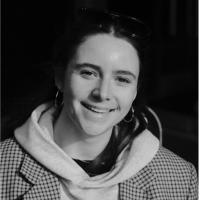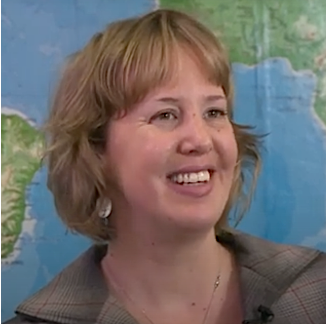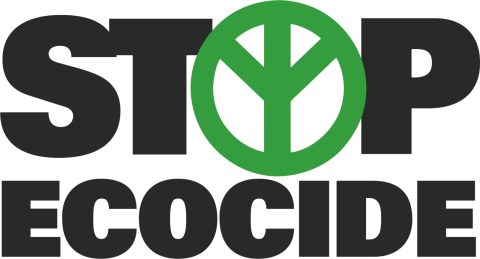Warrior Lawyer Profile: Femke Wijdekop

Dana Dingemans
Allard Exchange Student
Jun 25, 2025
Using Law to Protect Mother Earth

We as humans should no longer perceive the Earth as an object that can be exploited for our purposes: this is Femke Wijdekop’s message. Femke is a Dutch lawyer and an independent expert at UN Harmony with Nature. She is a member of the European Law Institute and the Environmental Restorative Justice Working Group of the European Forum for Restorative Justice, among other organizations.
In her view, our relationship with the Earth is not one of ownership. Humans are an integral part of the natural systems of our planet, yet our legal and economic systems ignore this fact. Only by acknowledging this disconnection is it possible to effectively address the imminent threat of climate change.
Femke studied law at the Vrije Universiteit Amsterdam and started a PhD in International Constitutional Law thereafter. Although this topic held her intellectual interest, she gradually began to wonder how her work contributed to society and global well-being, as she told Silver Donald Cameron in an interview in 2015. She felt like her work lacked sufficient meaning.
Following this realization, she stepped away from the academic field of law for several years, until she saw a TED talk by Polly Higgins on criminalizing ecocide as a crime against peace under the Rome Statute and expanding international accountability for environmental harm. Something shifted in her and made her excited to practice law again, as she told The Green Interview:
How law can save the Earth
From that moment on, Femke has been committed to contributing to the protection of the environment. She put her academic skills to use and conducted legal research on the role of law in addressing the challenge of environmental protection for current and future generations. Her work focused on how a human right to a clean and healthy environment can provide an answer to this challenge.
Femke also applied her legal expertise as a co-litigant in the famous Urgenda case, which challenged the Netherlands’ inadequate climate change targets. She contributed by translating legal documents to English, facilitating access for other organizations in the world and simplifying the process of initiating similar litigation in other jurisdictions.
Femke first learned about this concept from Polly Higgins in the previously mentioned TED Talk. After this, she joined multiple anti-ecocide movements and used the skills she acquired outside the academic world to a TED Talk in 2015 called “How law can save the Earth.”
In this talk she stresses the importance of rethinking humanity’s relationship with the Earth. Law is essentially a reflection of human norms and values. As long as we think of the Earth as an object that we can exploit for our purposes, the interests of the Earth and all its living creatures are not represented in law. This gets to the root cause of our climate crisis. The ecocide movement wants to change this by criminalizing intentional acts or omissions that result in serious damage to the environment.
Ecocide

The concept of ecocide was first introduced by biology professor Arthur W. Galston in the 1970’s during the Vietnam War. He drew attention to the disastrous consequences of Agent Orange, a toxic herbicide used by the US military to destroy the foliage and crops of enemy forces. From this moment onwards, legal scholars and academics advocated for the codification of ecocide as an international crime.
It was even considered during the drafting of the Rome Statute as a crime against peace. However, in 1996, this proposal was dropped due to a lack of support for the proposal amongst the participating states. The goal of the ecocide movement is to bring ecocide into the international legal system by adding it as the fifth crime against peace in the Rome Statute.
The challenge is that only a state party can initiate the amendment process. To push for this change, the movement focuses on raising awareness. For example, Femke contributed to a TV broadcast about Polly Higgin’s story, putting ecocide on the international agenda. A week after this broadcast, a member of the Dutch parliament asked the minister about his opinion on making ecocide a criminal offence under Dutch domestic law.
Eight years later, in 2023, a bill was proposed for this purpose. Although this was only a proposal and the Netherlands is not the first country to introduce such legislation, this example illustrates how the movement can contribute to putting this topic on the political agenda. Such moves at the national level can create momentum to initiate an amendment to the Rome Statute and include ecocide as the fifth crime against peace.
Very recently, in September 2024, Vanuatu submitted a proposal to amend the Rome Statute to criminalize ecocide internationally. State Parties have yet to vote on the proposal.
“All the good I can do”
Femke’s work shows how law—and passionate lawyers—can protect the planet. The ecocide movement is gaining momentum, turning awareness into real political action. With advocates like her, the goal of making ecocide an international crime is no longer just a vision—it’s nearing reality. This is an urgent necessity as climate change nears the point of no return.
I will give the last word to Femke herself, who summarized her contribution like this:
- Centre for Law and the Environment


